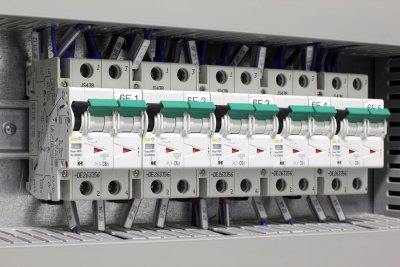Your home’s electrical system is made up of many sophisticated components. From your fuse box to your electrical panel, each part of your electrical system is important to its overall function. When you hire a residential electrician in San Jose , your technician may suggest that you schedule an inspection for your circuit breaker. Your circuit breaker is responsible for turning off individual power sources in the event of an electrical surge. Without a properly working circuit breaker, your home could be unsafe. Let’s take a look at some important facts about circuit breakers. 
How Circuit Breakers Work
When you are learning about your home’s circuit breaker , it is helpful to understand how these devices work. A circuit breaker is typically installed in an out of the way location, such as a basement or garage. Each breaker switch on the panel is connected to a different wiring system in your house. For example, you will have specific switches for your kitchen and bathroom.
The Common Causes of Tripped Circuit Breakers
There are several different scenarios that can cause your circuit breaker to trip. First, you may find that your circuit breaker trips when you turn on a certain electrical appliance in your house. In addition, large appliances, such as air conditioners, can also trip circuit breakers. Circuit breakers are designed to trip when they sense that one or more electrical circuits has been overloaded. This mechanism will help prevent an electrical fire or other emergency in your home.
Knowing When to Call an Electrician
When your circuit breaker trips, you will be able to reset the switch on your own. However, there are certain scenarios that will require you to contact your electrical contractor. For example, if you find that a certain switch in your circuit breaker trips frequently, this could be an indication that your wiring is faulty. By updating your wiring with the help of your electrician, you can improve the performance of your circuit breaker.


